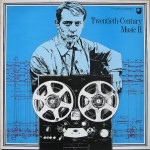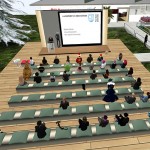Learning in an Open World online only conference
Monday, June 14th, 2010There is a blog by organiser Matin Weller here and the programme is here
The OU has a conference every year to share practice and research around learning and technology. This year the event is completely online and open to all. The event will take place across 2 days (22nd and 23rd June), with the synchronous presentations being held in Elluminate and asynchronous discussion held in Cloudworks.
The theme of the conference is ‘Openness in education’ and in keeping with that theme it is open to everyone, not just OU staff. It is an opportunity to engage in dialogue around the four main themes of open content, teaching, learning and access.
If you are interested in ‘attending’ some or all of the conference, please go to the Cloudworks site http://cloudworks.ac.uk/cloudscape/view/2012 and also check there for up to date information about the programme, practice sessions and call for contributions. You will need to register on Cloudworks to add any content and to indicate you are attending.
Contributions will be in a web format, such as YouTube, Slideshare, Animoto, which might result in a broader audience, able to engage with the projects and ideas within the Open University, and a discussion which will aid the University in its exploration of the theme of open education.




